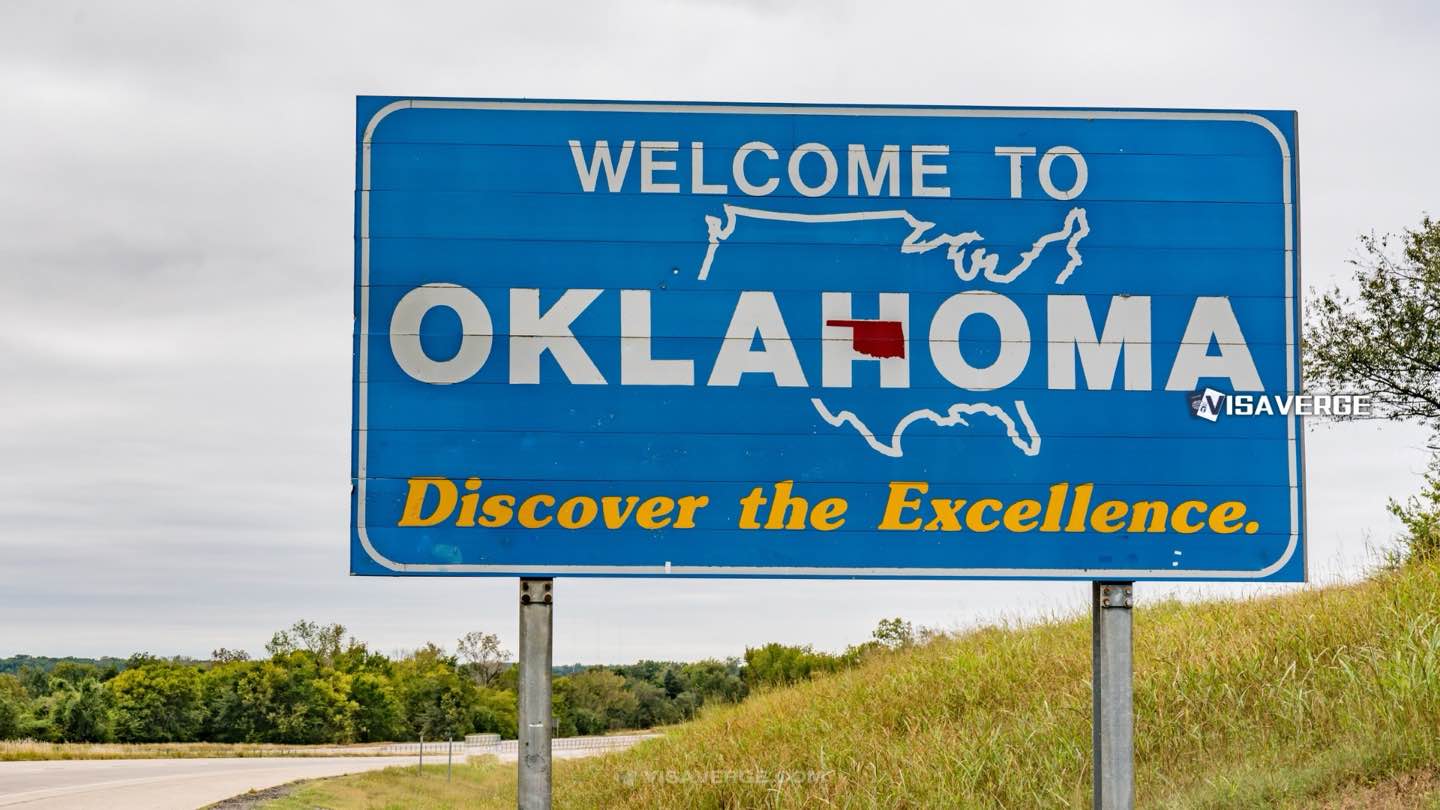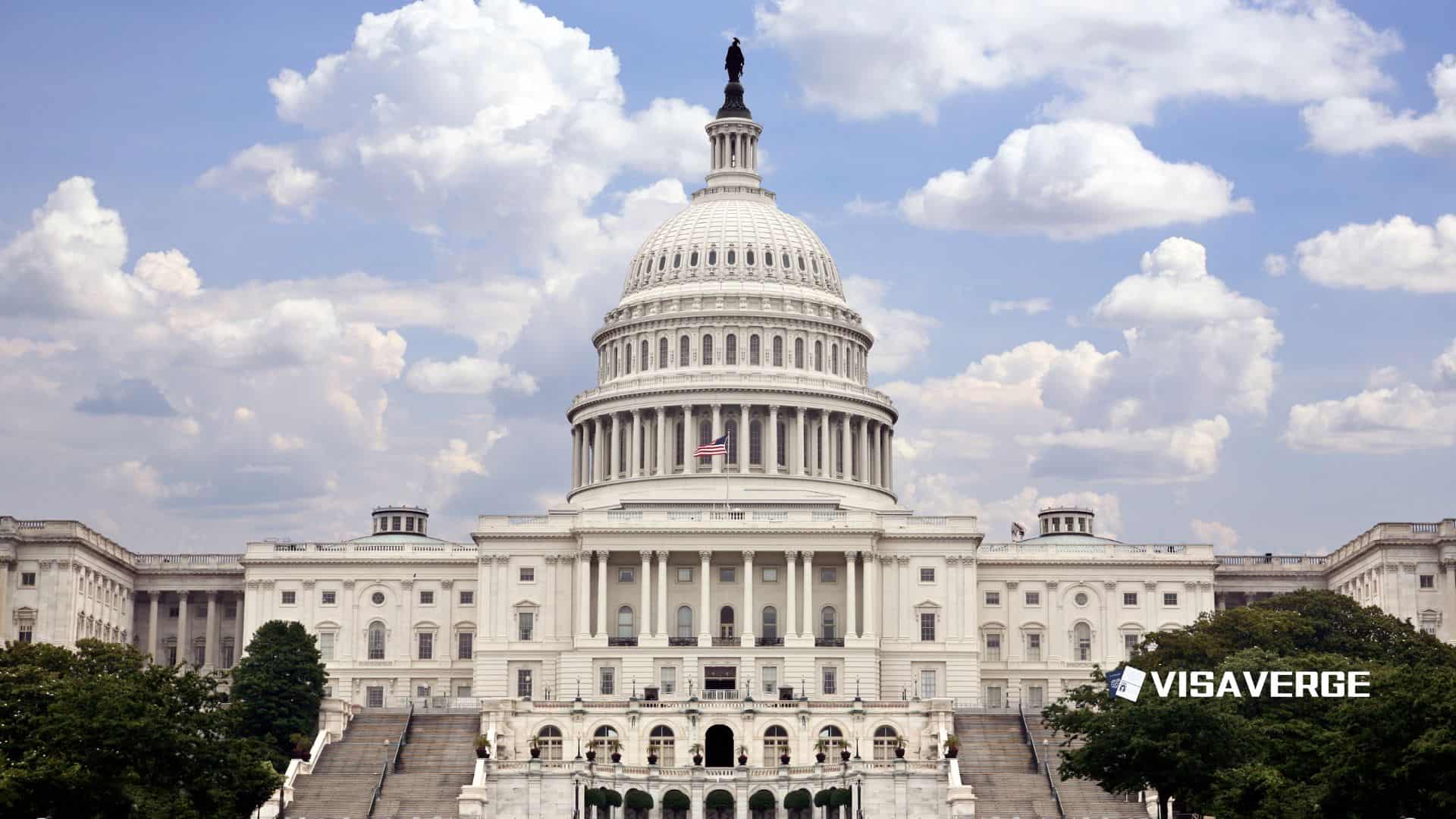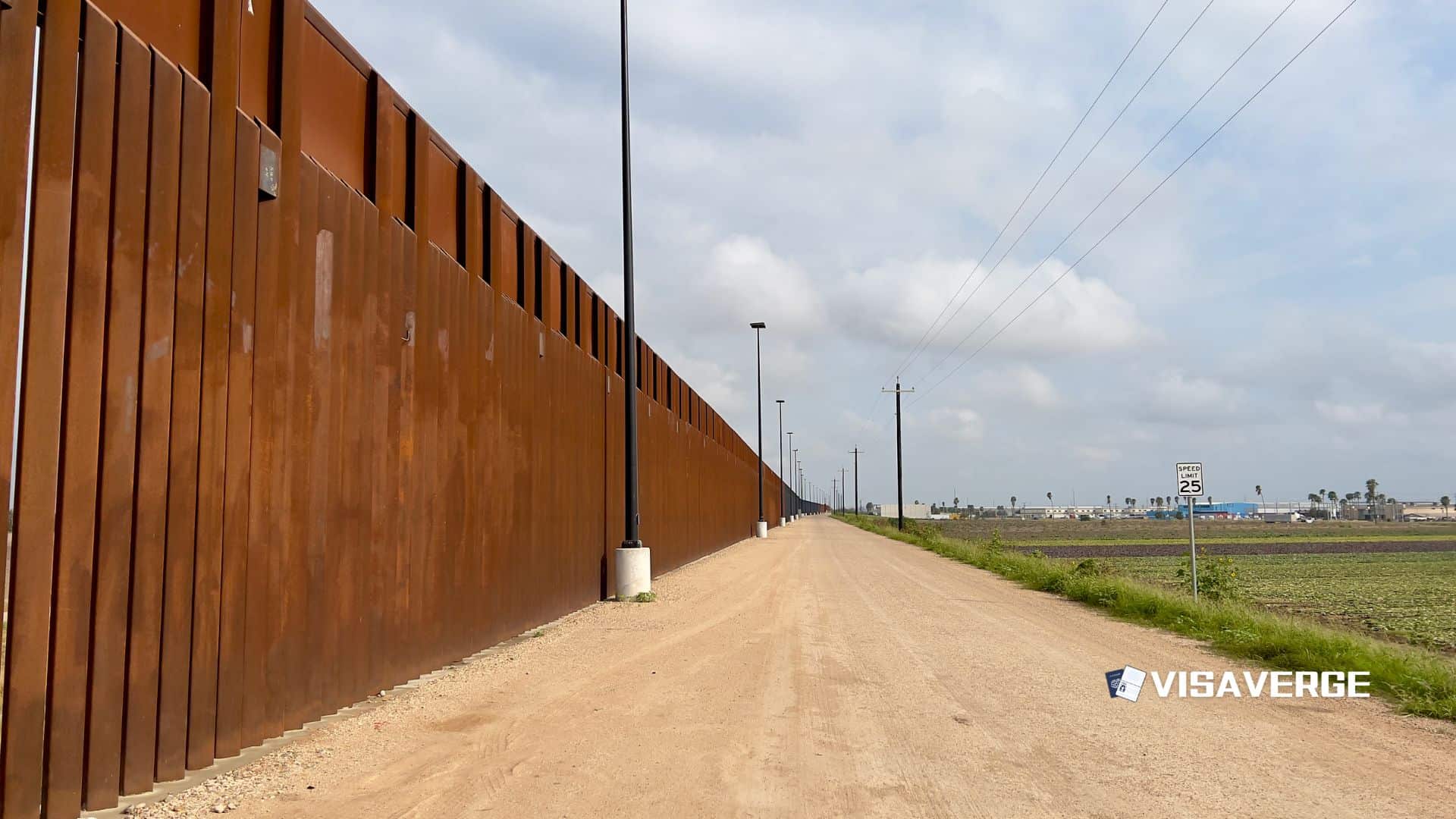Key Takeaways
• Oklahoma Latino Caucus and conservatives unite against immigration enforcement leading to family separation.
• Legal clinics prepare documents like powers of attorney to protect children if parents are detained or deported.
• Recent proposals prompting debate include requiring schools to collect students’ immigration status and teachers to pass citizenship tests.
Oklahoma is seeing a wave of concern about how immigration enforcement can lead to family separation. Both the Oklahoma Latino Caucus and several conservative leaders are raising alarm about how strict rules and aggressive actions can split families apart. The debate is particularly heated right now as some enforcement strategies—some say they remind them of actions taken under President Trump—are being discussed in public and government meetings. This joint worry is unusual in Oklahoma politics and is shining a new light on the challenges that immigrant families face.
Let’s look closely at what is happening, why it matters, and how communities and leaders are answering this problem. This article will walk you through the main facts, explore what both sides are saying, and explain why so many people—no matter their political background—are troubled by family separation.

Rising Tensions Over Immigration Enforcement
The conversation about immigration enforcement in Oklahoma intensified recently, especially around what happens to kids when their parents are detained or removed. This focus on children and family separation is not new, but it has returned to the spotlight as lawmakers and other leaders look at new ways to deal with immigration.
Many people in the Latino community in Oklahoma have been through this worry before. The threat of parents being picked up by immigration authorities, often without warning, has left children scared about what will happen to their families. Community groups and local leaders say that this kind of enforcement does not just affect the person who is detained—it ripples out, hurting children, schools, churches, and whole neighborhoods.
The Response from the Oklahoma Latino Caucus
One of the groups at the center of this response is the Oklahoma Latino Caucus. Made up of lawmakers with Latino roots, this group speaks up for the concerns of the Hispanic and immigrant communities. Senator Michael Brooks, a well-known member, has taken the lead in organizing real help for families at risk.
In Oklahoma City—especially on its south side, where many Latino families live—the danger of mass deportations feels very real. Leaders from the Oklahoma Latino Legislative Caucus have started holding legal aid clinics to help families prepare for the worst. These clinics are held in schools or churches and are open to anyone worried that immigration enforcement may break up their family.
At these events, parents get help drawing up important legal papers like powers of attorney and standby guardianship forms. These documents make sure that if a parent is suddenly detained or removed, there’s someone ready to care for their children. About 350 people recently got help at one such clinic, which shows just how many families are living with this fear day to day. As adults got advice, children played or waited nearby, making the issue hit home for everyone present.
The leader of the Oklahoma Latino Caucus, Senator Brooks, says this work is not only about immigration. Often, parents are unable to care for their kids because of reasons like health problems or criminal charges. But, he points out, rapid and broad immigration enforcement means tools like these powers of attorney are more needed than ever before. “We want families to think ahead and be ready for whatever might happen,” Senator Brooks has explained.
How Conservatives Are Also Calling for Change
What makes the current moment unique is that voices normally seen as tough on immigration—conservatives and faith leaders—are also expressing pain over family separation. Some of these leaders have spoken out in public, using words like “cruel” and “inhumane” to describe what happens when strict immigration enforcement splits families up.
This is echoed by faith-based groups, who say that separating parents and children clashes with deeply held religious values. Many faith leaders teach that caring for children is a basic moral duty. When immigration enforcement acts quickly and separates families, religious leaders warn, the government is harming that core value.
Voices at the national level have joined in, too. Sam Rodriguez, who speaks for the National Hispanic Christian Leadership Conference, has said that cracking down hard on immigration may actually cause more families to break up. Parents sometimes see what’s coming and leave their children with friends or distant family before anything happens, worried that a sudden arrest will leave their kids with no one.
As reported by VisaVerge.com, the joining of conservative and Latino voices creates pressure for state officials to listen and maybe adjust their approach. When criticism about family separation comes from several sides, it becomes hard to ignore.
What Lawmakers and the Governor Are Saying
The conversation about family separation has moved from churches and community centers to the Oklahoma Capitol. Recent proposals from state officials have raised questions about whether new rules unfairly target immigrant families and children, instead of making everyone safer.
For example, there have been recent proposals that would make teachers pass citizenship tests or require schools to collect information about students’ immigration status. While some lawmakers say these ideas are about following the law or protecting the state, others worry they will end up hurting kids. Governor Kevin Stitt said, “Maybe we shouldn’t put kids on a list… I’m not gonna start picking on seven- and eight-year-olds…” These comments show that even those in power are not comfortable with treating children as part of the immigration debate.
Both Republican and Democratic lawmakers have said they don’t want to see children punished because of their parents’ immigration status. There’s a growing feeling that rules should stay focused on adults or those who directly break laws, rather than sweeping in whole families and their children.
Earlier, state Republicans promised strict immigration enforcement would not bring a wave of family breakups. But now, after reports came out showing the real human cost, community leaders are questioning those promises. They argue the state needs to pay attention not just to rules, but also to the everyday pain these rules can cause.
The Real-life Impact: Stories from the Community
If you spend any time in south Oklahoma City or other areas with many immigrants, you see the results of these laws and proposals up close. Local leaders say the biggest concern is what happens when parents are not home for their kids. Teachers have spoken about children coming to school distracted or in tears, worried their mom or dad might not be at home when they return.
Faith groups and advocacy organizations have stepped up to fill the gap, offering both comfort and help with paperwork. When families are separated, neighbors and friends often care for children. But as the Oklahoma Latino Caucus says, this is not a system anyone wants to rely on.
It’s not just about losing a parent to immigration detention, either. Parents facing deportation or legal trouble often pull their kids out of after-school programs, stop attending public events, or even avoid taking their children to doctors out of fear. This climate of anxiety means children miss out on opportunities and live with stress every day.
The Role of Legal Clinics and Family Planning
One major effort to ease these problems comes in the form of legal clinics. The Oklahoma Latino Caucus hosts them so families can prepare for the chance of separation. At these clinics, attorneys help parents set up powers of attorney, which are documents giving another adult the right to make decisions for their children while they’re away. Standby guardianship forms serve a similar role, and both help make sure that children have someone to turn to if things go wrong.
Legal clinics like these don’t just help with paperwork. They also give families peace of mind, knowing that, even if a parent is detained, their children will avoid ending up in state foster care or with strangers. The clinics cannot solve all problems, but they offer one way for families to keep some control during difficult times.
This practical help is combined with a push for lawmakers to think about the human cost when creating policy. The Oklahoma Latino Caucus hopes that by showing how prepared so many families feel they need to be, officials will see the need for a more careful approach.
Broad Support for Keeping Families Together
The real story behind these efforts is how the idea of keeping families together is bringing people together who often disagree on other issues. Conservatives who might not always support immigrant rights still feel strongly about family unity. They use words like “un-American” to describe policies that pull parents and children away from each other.
For religious leaders, the idea of family is sacred. These leaders often have deep roots in the local community and see firsthand the suffering that family separation causes. Churches have become places where families find help, but also safe spaces to talk about their fears and hopes.
Both sides—whether from the Oklahoma Latino Caucus or conservative churches—agree on one thing: Children should not pay the price for immigration disputes. This shared value stands out at a time when politics increasingly divides Americans.
Changes in Policy and Public Opinion
As the pushback grows, state agencies and school boards have begun to pause and reconsider some of the strictest rules. There have been open talks at state department meetings about whether requiring teachers to verify their citizenship or collecting details about students’ status really makes anyone safer. Some officials worry these steps will only drive families further into the shadows and make it harder for children to succeed.
Families, advocates, and faith leaders hope these discussions will lead to changes that keep children safe and families together. Even the governor’s recent public comments have fueled hope that the state will avoid new measures that unfairly target kids.
The Bigger Picture: America’s Ongoing Debate
What’s happening in Oklahoma is not unique. The debate over family separation because of immigration enforcement has played out across the United States 🇺🇸 before. Under President Trump, sharp changes in border policies led to thousands of children being separated from their families, sparking nationwide protests and bipartisan criticism.
After that, many states and localities began trying to find their own way through the problem. Some passed laws to keep law enforcement away from schools or limit how much local police could help federal agents with immigration arrests, especially if it would split families. Others, like Oklahoma, see waves of new concern any time tough enforcement measures are discussed.
No matter the politics, the long-lasting effects of family separation are hard to ignore. Studies and health experts warn that children who lose parents to detention or deportation often face emotional problems, drop in school achievement, and anxiety. Community leaders say these impacts can last for years or even a lifetime.
What Stakeholders Say: A Quick Look
Here is a summary of the main groups and what they are saying:
- Oklahoma Latino Caucus: Focuses on keeping children safe from family separation. Organizes legal aid events and speaks up at the Capitol.
- Conservatives and Faith Leaders: Argue that splitting up families is against basic American and religious values. Publicly call for an end to “cruel” treatment.
- Gov. Kevin Stitt and Lawmakers (Both Parties): Reject new rules that single out kids or punish them for their parents’ status. Call for laws that don’t create extra fear in schools and communities.
This spirit of unity around protecting families suggests that changes could be coming, or at the very least, that more voices will be heard in future debates about Oklahoma’s approach.
Where to Find More Information
For families worried about how immigration enforcement could affect them, or for advocates who want to help, it’s important to get updates from trusted, official sources. The U.S. Citizenship and Immigration Services has detailed information on immigration enforcement and family separation, including resources for affected families.
Oklahomans can also keep up with local rules by visiting state government sites and attending community events organized by the Oklahoma Latino Caucus and other groups.
Final Thoughts
The issue of family separation because of immigration enforcement has brought together many Oklahomans who might not agree on much else. As shown by the Oklahoma Latino Caucus, conservative voices, and lawmakers from both parties, there’s a growing call to stop policies that put children at risk just because of their parents’ immigration status.
This new unity could mean better support for immigrant families, less trauma for children, and a future where public policy puts family first. The hope is that Oklahoma can set a new example by crafting rules with a focus on protecting children, supporting families, and respecting everyone’s rights. As the debate continues, the message from many in the state and beyond is clear: Keep families together, and let compassion guide the way forward.
Learn Today
Oklahoma Latino Caucus → A group of Oklahoma lawmakers with Latino backgrounds advocating for the rights and needs of Hispanic and immigrant communities.
Power of Attorney → A legal document that allows someone to make decisions on behalf of another person if they’re unable to do so.
Standby Guardianship → A legal arrangement naming a substitute guardian for children if parents are suddenly detained or deported.
Immigration Enforcement → Government actions and policies that aim to identify, detain, and remove individuals violating immigration laws.
Family Separation → The division of families, often children from parents, due to immigration enforcement or detention actions.
This Article in a Nutshell
A rare alliance is growing in Oklahoma as Latino lawmakers and conservative leaders push back against harsh immigration enforcement. Legal aid clinics equip families facing separation, while debates over new laws intensify. Across political lines, Oklahomans urge policies to protect children, keep families together, and prevent unnecessary trauma from aggressive immigration actions.
— By VisaVerge.com
Read more:
• Afghan family sues German government over visa delays after approval
• British Airways removes family from Shanghai Pudong flight over baby’s rash
• F-1 visas denied at US consulate over family ties raise concerns
• Hernández García Family Stopped in South Texas Deportation
• ICE Check-In Shatters Family With Sudden Separation













